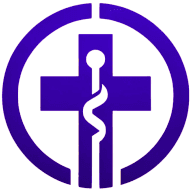What’S the Future of Healthcare Technology?
Navigating the complex web of healthcare technology, this article sheds light on the transformative trends shaping the industry's future. Drawing on the expertise of seasoned professionals, it offers a forward-looking perspective on how technology will revolutionize patient care. Explore the expert insights that forecast the innovations set to redefine healthcare efficiency and accessibility.
- AI-Driven Healthcare Ecosystem
- Revolutionizing Urgent Care
- Seamless Access to Medical Records
- Patient-Centered and Efficient System
- Telehealth and Remote Monitoring
- Interoperability, Safety, and Accuracy
- Accessible and Personalized Care
- Transformative Force in Healthcare
- Democratizing Mental Health Support
- Efficient and Personalized System
- Seamless Integration of Data
- Fully Integrated Care Systems
AI-Driven Healthcare Ecosystem
Hello,
I am John Russo, a VP of Healthcare Technology Solutions at OSP Labs.
I've always believed that technology's true power lies in making healthcare easily accessible to everyone. My vision for the future of healthcare technology is rooted in this belief. I aim for a coherent ecosystem where technology empowers providers and patients. I also think the healthcare system is likely to get much more intuitive and personalized.
I foresee AI setting the foundation for this transformation. The impact will be profound. Very soon, an AI-driven healthcare ecosystem might identify a patient's early signs of illness through wearable sensors and send real-time alerts before the patient even sets foot in the clinic.
We'll be headed toward a healthcare system that's more predictive than reactive. As for its impact, I hope it means fewer hospitalizations for patients and a personalized healthcare experience. For healthcare providers and institutions, it would result in more operational efficiency, reduced costs, and the ability to innovate further.
Above all, I hope for a more connected and intelligent healthcare system in the future. By continuing to innovate and collaborate, we can reach this objective and make healthcare more convenient.
Best regards,
John
https://www.osplabs.com

Revolutionizing Urgent Care
The future of healthcare technology in urgent care is set to revolutionize how immediate care services are delivered, with advancements like AI-driven diagnostics, telemedicine, and wearable health devices leading the charge. AI will work alongside urgent care professionals to detect diseases early, enabling faster, more accurate diagnoses for a range of conditions. Telemedicine, which saw a 154% increase in use during the COVID-19 pandemic according to Deloitte, allows patients to receive care remotely, making urgent care more accessible, especially for non-emergency concerns. Wearable devices will enable real-time health monitoring, allowing for proactive intervention and faster response times, reducing unnecessary in-person visits while ensuring timely care.
These technological innovations will also improve the efficiency and accessibility of urgent care services. By optimizing resource allocation and reducing administrative burdens, AI and better data sharing will streamline workflows and minimize errors. With seamless integration of patient data, urgent care providers will have quick access to medical histories, improving accuracy and enhancing patient outcomes. Ultimately, these advancements will make urgent care more patient-centered, cost-effective, and equitable, particularly for those in underserved or remote areas who may struggle to access traditional healthcare services.

Seamless Access to Medical Records
With over 30 years of retail pharmacy experience, I've seen firsthand how technology can transform healthcare-both its successes and missed opportunities. My vision for the future of healthcare technology revolves around accessibility, personalization, and efficiency.
I hope we see a healthcare system where patients have seamless access to their medical records, prescriptions, and consultations in real time. Imagine a platform where patients, doctors, and pharmacists can collaborate effortlessly, ensuring real time interventions and fewer medication errors.
For patients, the impact would be life-changing. Tools like AI-driven medication adherence reminders, virtual care for rural or underserved areas (think the Great White American North!) and predictive analytics for chronic disease management can empower patients to take control of their health.
For the healthcare system, technology can streamline workflows, reduce administrative delays, and improve communication between Health providers. This would mean fewer time wastage, less duplication of effort, and in the end, better patient outcomes.
The key will be balancing innovation with human connection. As pharmacists, we need to embrace these advancements while ensuring we remain accessible, empathetic, and patient-focused. Patients still need that special personal touch and AI should free our time to do so.

Patient-Centered and Efficient System
The future of healthcare technology is incredibly promising, and my vision centers on creating a more patient-centered, efficient, and accessible healthcare system. I believe the integration of artificial intelligence, telemedicine, and wearable devices will play an important role in enhancing early detection, personalized treatment plans, and proactive care. For example, wearable devices can now monitor vital signs in real-time, alerting patients and healthcare providers about potential health issues before they escalate. Such innovations not only empower individuals to take charge of their own health but also alleviate the burden on the healthcare system by reducing hospital visits for preventable conditions.
According to the Centers for Disease Control and Prevention (CDC), telemedicine use among physicians surged from 15.4% in 2019 to 86.5% in 2021. For patients, the impact is transformative, with improved outcomes through early intervention and greater convenience, especially for those in underserved or remote areas. For the healthcare system as a whole, these advancements streamline workflows, optimize resources, and reduce costs, making high-quality care more sustainable and equitable. Ultimately, this approach can bridge gaps in care, minimize disparities, and create a more resilient system that prioritizes patient well-being above all.

Telehealth and Remote Monitoring
My vision for the future of healthcare technology aligns with Healthie's telehealth platform, focusing on accessible, personalized, and preventative care. Healthie's integration of telehealth, remote monitoring, and client engagement tools empowers patients to stay connected with healthcare providers, fostering continuous support and early intervention.
I see platforms like Healthie expanding to incorporate AI-driven insights and wearable device data, allowing for real-time health tracking and tailored wellness plans. This can help manage chronic conditions, enhance nutrition counseling, and promote mental health care from anywhere.
By enabling seamless communication and data sharing, Healthie reduces barriers to care, improves patient engagement, and lowers healthcare costs. Ultimately, I envision Healthie driving a future where patient-centered, preventative care becomes the foundation of the healthcare system.

Interoperability, Safety, and Accuracy
Healthcare technology is centrally dependent on simultaneously sharing data faster (interoperability), more securely (safety), and more accurately. All three of these will directly result in faster, better, and cheaper healthcare if acted on.
Faster:
Interoperability is the transition from faxed exchanges to digital data exchanges using automated APIs. While this technology has been around for decades in other industries, it is very new to healthcare and more broadly the payer industry. Also, rather than using paper records, this means trading data as C-CDA (HL7v3) XML structure files or FHIR (HL7v4) JSON structured files that can be easily parsed and interpreted by computers rather than requiring human review every time.
Safe:
There is a reason that healthcare is a slower sector than others - adopting technology swiftly can be dangerous. Even with a new wave of artificial intelligence, there are wide barriers that must be overcome for it to be used in healthcare - Tenasol Technologies being one of the few that is able to successfully do so.
Accurate:
As the volume of healthcare data is exponentially expanding, it is hard to keep the same traditional operations going. It is not uncommon for a medical record to be 10,000 pages long these days for older patients. Making use of this data quickly and in a way that best benefits the patient is not a small undertaking. Furthermore, a significant portion of the population is not getting the care they need - simply because they don't know that the levers are there for them to pull for either disability benefits, insurance coverage, or general treatment. Accuracy doesn't just mean getting it right, it means making sure that citizens get the healthcare they are entitled to.

Accessible and Personalized Care
Honestly, I think the future of healthcare technology is all about making care more accessible and personalized. Imagine AI helping doctors catch diseases earlier, wearable devices monitoring health in real time, and apps that let patients manage their care from anywhere.
What excites me the most is the idea of closing gaps—like reaching people in remote areas or streamlining systems so patients spend less time navigating red tape. I hope this tech not only improves patient outcomes but also reduces stress for everyone involved, making healthcare a smoother, more human experience.

Transformative Force in Healthcare
I see the future of health care technology as a transformative force that makes care more accessible, personalized, and preventative. I think one of the biggest opportunities lies in leveraging AI and wearable devices to provide real-time health insights.
For example, I'd love to see a world where smart devices not only track metrics like heart rate and sleep but also predict potential issues and alert both patients and providers before symptoms escalate.
Another vision I'm excited about is telemedicine becoming the norm rather than the exception. I've seen firsthand how virtual care can bridge gaps, especially for rural communities or patients with mobility challenges.
If we integrate this with robust electronic health records, patients could experience a seamless flow of care, no matter where they are.
Ultimately, I hope technology empowers patients to take charge of their health and reduces the systemic strain by focusing on prevention and efficiency.
I'd love to see health care evolve into a system where quality care is truly universal. If you feature my thoughts, I'd be excited to read the final article!

Democratizing Mental Health Support
In my journey as the founder and CEO of MentalHappy, I've focused on leveraging technology to democratize access to mental health support through virtual support groups. One impactful instance was when we used AI-driven tools to optimize group matching, resulting in improved health outcomes and a 70% participation rate in a Los Angeles County behavioral health hospital's programs. This showcases the potential of digital platforms to improve patient engagement and improve therapy outcomes.
Through these innovations, I envision a future where healthcare technology prioritizes accessibility and personalization, removing barriers to mental health care. By providing HIPAA-compliant solutions with integrated data insights, we're enabling practitioners to offer more custom and effective treatment plans. For example, our Write It Out group, driven by user feedback and Big Data insights, significantly increased retention rates by over 25%, highlighting the power of data in refining mental health solutions.
I aim for these technologies to foster proactive mental health management, reducing the pressure on healthcare systems and improving patient experiences. By focusing on accessibility and personalization, we empower individuals to engage actively in their mental health journeys, ensuring healthcare technology transforms into a supportive partner in overall well-being.

Efficient and Personalized System
The future of healthcare technology holds incredible potential for patients and providers. Advancements in AI, wearables, and telemedicine are creating a more efficient, personalized system. Patients could soon have real-time health data at their fingertips, helping them make informed decisions and address issues early.
For me, it's all about creating connections—bridging the gap between patients and providers in a way that feels accessible, personal, and effective. Technology should never replace the human touch in healthcare but complement it, enabling providers to focus more on personalized care while technology seamlessly handles the background.
My hope is to see families using these advancements to take control of their health journeys and live fuller, happier lives.

Seamless Integration of Data
My vision for the future of healthcare technology is one where seamless integration of data, artificial intelligence, and patient-centered care leads to more personalized, efficient, and accessible healthcare for all. With advancements like AI-driven diagnostics, telemedicine, and real-time health monitoring, we can move towards proactive care rather than reactive treatments. The ultimate goal is to empower both patients and healthcare providers by making healthcare more accessible, accurate, and timely.
The impact I hope to see is a system where patients receive faster and more tailored care, reducing wait times and improving outcomes. At the same time, healthcare providers will have the tools to make data-driven decisions, freeing them up to focus on meaningful interactions with patients. This transformation will lead to a more sustainable healthcare system that prioritizes patient well-being, reduces administrative burden, and ultimately fosters a healthier, more informed society.
Fully Integrated Care Systems
Hi,
I envision healthcare technology moving toward fully integrated, patient-centered care systems where data flows seamlessly between providers and patients. The goal should be empowerment. Patients should have full access to their health information in real-time, presented in a way that's easy to understand, so they can take an active role in their care.
In my practice, I see the frustration patients feel when they have to retell their medical history or go through disjointed systems. Imagine a future where wearable devices monitor key health metrics and instantly sync with a secure platform that both the patient and their providers can access. For example, a patient with sleep apnea could share nightly oxygen levels and breathing patterns with their dentist, primary care doctor, and sleep specialist, ensuring coordinated care without unnecessary visits or duplicated tests.
This integration would save time, reduce errors, and lead to better outcomes. Beyond convenience, it would allow healthcare professionals to focus on prevention rather than reaction. I hope technology continues to break down barriers between systems, making healthcare more accessible, transparent, and tailored to individual needs.
Best,
Kalli



